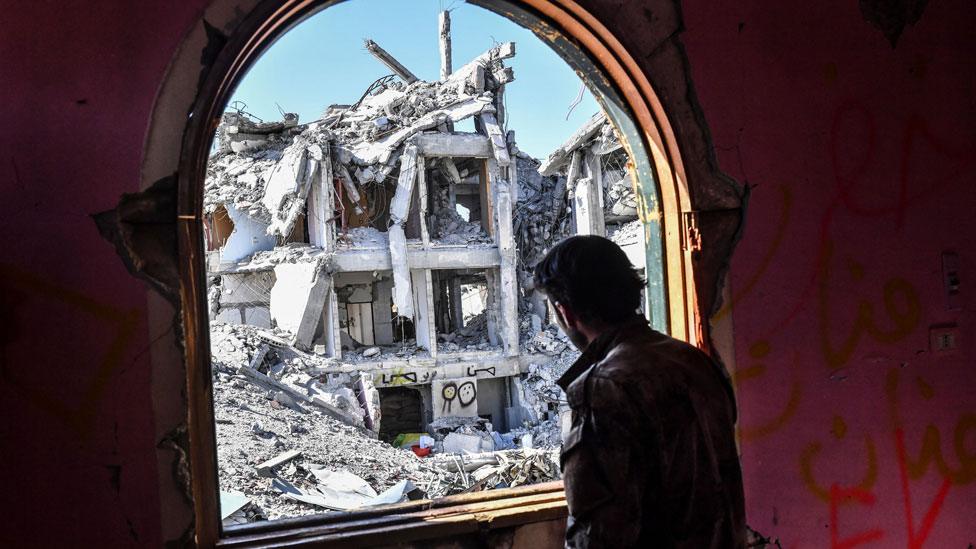Syria conflict: Divided opposition begins unity talks in Riyadh
- Published
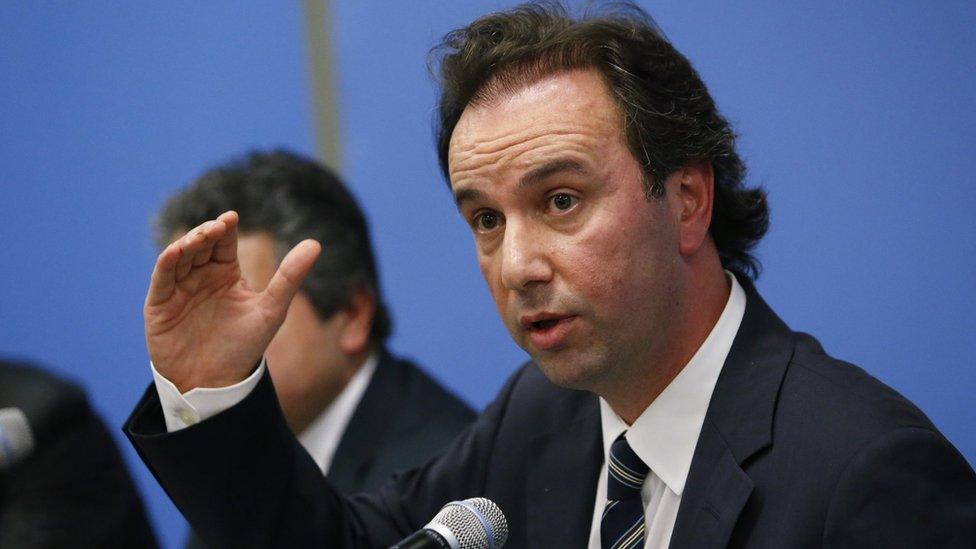
National Coalition president Khaled Khoja said many delegates were already in broad agreement
More than 100 Syrian rebels and opposition politicians are meeting in Riyadh in an attempt to come up with a united front for possible peace talks.
As the conference in the Saudi capital began, one of the most powerful rebel groups struck an uncompromising tone.
Ahrar al-Sham insisted President Bashar al-Assad would have to face justice.
It also criticised the presence of Syria-based opposition figures tolerated by Mr Assad and the absence of al-Qaeda's affiliate in the country.
World powers want peace talks between a unified opposition delegation and the government to start by 1 January, and a transitional government to be formed within six months.
'Lack of representation'
The two-day conference at a heavily secured hotel in Riyadh is taking place under the auspices of the Saudi government, which has provided political and military support to the Syrian opposition.
One delegate told the AFP news agency the first day would focus on political questions, including the outline of a potential political settlement, while the second would be dedicated to discussing "terrorism, a ceasefire and reconstruction".

Among those attending are representatives of the Western-backed National Coalition, whose leaders are based mainly outside Syria, and the more moderate National Co-ordination Committee, which is tolerated by Damascus.
Most of the main rebel factions are taking part, including Ahrar al-Sham, an ultraconservative Islamist group that operates mainly in north-western Syria.
Notably absent are Kurdish groups, which control large parts of the north, and the powerful al-Qaeda-affiliated al-Nusra Front, which is part of an alliance with Ahrar al-Sham but is regarded internationally as a terrorist organisation.
The BBC's Hanan Razek in Riyadh says there is a keen sense of optimism that a common position will be found.
The president of the National Coalition, Khaled Khoja, said many of those attending the meeting were already in broad agreement.

Who's attending the Riyadh conference?
The main Western-backed political alliance, the National Coalition for Syrian Revolutionary and Opposition Forces, supports the implementation of the 2012 Geneva Communique, external, which calls for the establishment of a transitional governing body in Syria. Its Turkey-based leadership insists that President Assad must go
The Syria-based opposition grouping, the National Co-ordination Committee for Democratic Change, calls for negotiations on a peaceful transition. It is tolerated by the government, though its members have been harassed and detained.
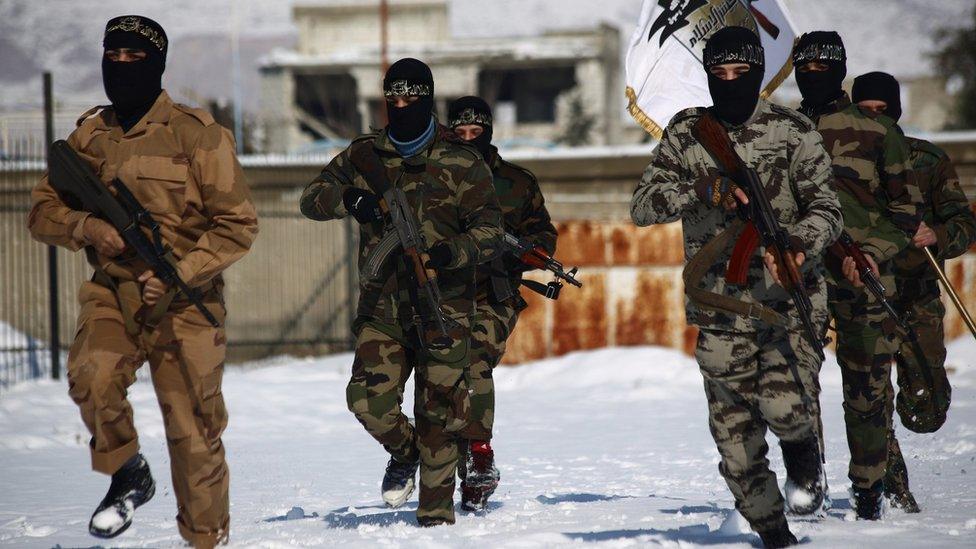
Jaysh al-Islam, one of the most powerful rebel factions, is attending the Riyadh conference
Ahrar al-Sham is a ultraconservative Islamist, or Salafist, rebel group that aims to topple Mr Assad and build an Islamic state, though it vows to achieve the latter through the ballot box and not force. It is part of Jaysh al-Fatah, an alliance that includes the al-Qaeda-affiliated al-Nusra Front.
Jaysh al-Islam, a Islamist rebel group active mostly around Damascus, previously called for the establishment of an Islamic state. Its leader now says he favours allowing Syrians to decide what sort of state they want.
The Western-backed Southern Front alliance, which operates in the south, describes its self as "the moderate voice and the strong arm of the Syrian people".

But Ahrar al-Sham - whose founders had links to al-Qaeda - criticised the "lack of representation of jihadist factions" at a level reflecting their presence on the ground in Syria. Some of those invited were "closer to representing the regime than the people and the revolution", it added without elaborating.
The group also warned that it would "not accept the results of this conference" unless they included "the complete cleansing of the Russian-Iranian occupation of Syrian land, and the sectarian militias which support it".
It called for the "overthrow of the Assad regime with all its pillars and symbols, and handing them over for fair trial".
Security and military institutions would also have to be dissolved, Ahrar al-Sham said, rejecting last month's statement, external by 17 world powers - including the US, Saudi Arabia, Russia and Iran - that called for them to be kept intact initially.
They see a political solution to the four-and-a-half-year conflict as an important step in a process that will eventually lead to the elimination of the self-styled Islamic State (IS), which controls large parts of northern and eastern Syria.
- Published28 November 2015
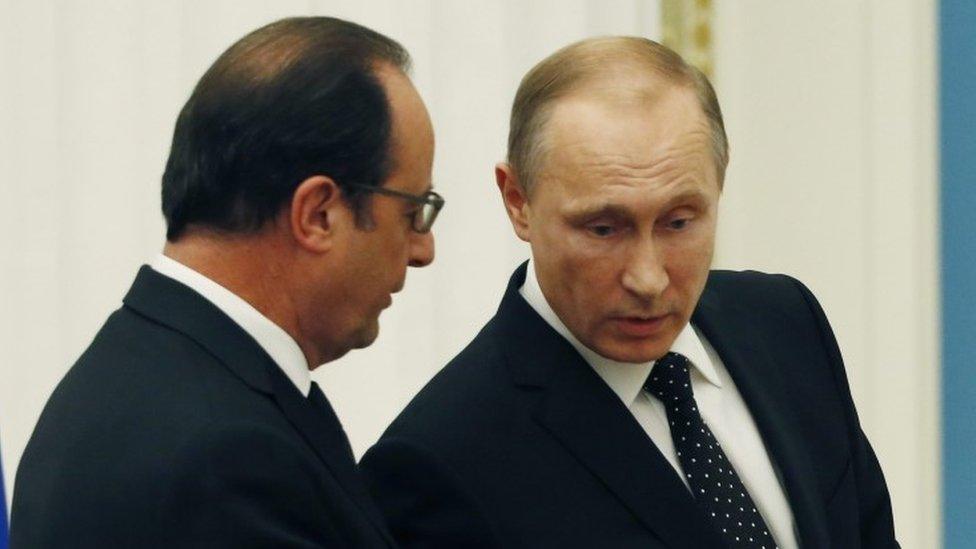
- Published30 October 2015
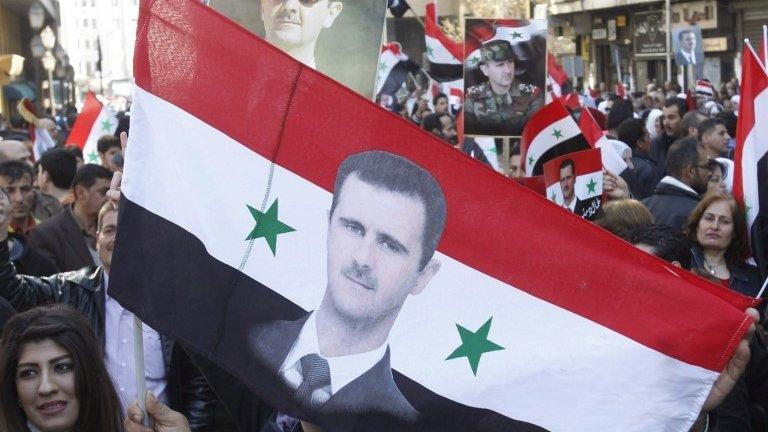
- Published28 March 2018
